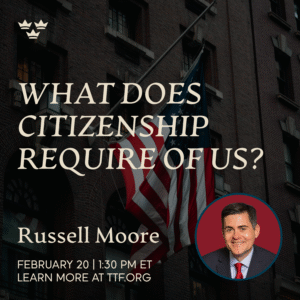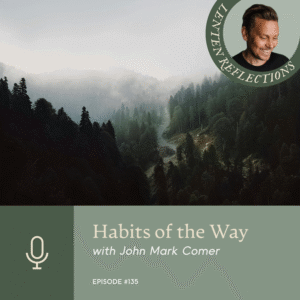Despite the significant problems faced by President Obama and Democratic lawmakers, it is often said that the Republican Party is still in a state of disrepair. The GOP is supposedly heading for a civil war between its base and moderates. It has no compelling national leader. Conservative activists are turning off the rest of the nation. Americans are not self-identifying as Republicans as much as they should. And so forth. “The Democrats' losses have not been Republican gains,” is how former Clinton press secretary Dee Dee Myers put it on NBC's Meet the Press.
The evidence shows something quite different. The most recent example can be found in the latest ABC News-Washington Post poll. According to Dan Balz and Jon Cohen:
Republicans have significantly narrowed the gap with Democrats on who is trusted to deal with the country's problems and have sharply reduced several of President Obama's main political advantages. . . . The survey paints a portrait of a restless and dissatisfied electorate at the beginning of a critical election year. More than seven in 10 Americans disapprove of the job Congress is doing, and as many say they're inclined to look for new congressional representation as said so in 1994 and 2006, the last times that control of Congress shifted.
ABC's Gary Langer puts it this way:
The Republican Party has grown dramatically more competitive in public trust to handle the country's most pressing issues, capitalizing on seething economic discontent and doubt about President Obama's performance to challenge the Democrats in midterm election preferences.
So the “trust deficit” between the two parties has narrowed dramatically. The Congressional Generic Vote polls show Republicans tied, up by three points, and up by eight points. Republicans have won significant gubernatorial victories in New Jersey and Virginia — and a stunning triumph in last month's Senate race in Massachusetts. In those three statewide elections voters turned to Republicans by a 2-to-1 margin or more.
No “civil war” has broken out, and none will. GOP recruitment efforts for the mid-term elections are going extremely well, while many Democrats are either retiring or not throwing their hats into the ring at all. In state after state — Delaware, Illinois, Arkansas, Nevada, Pennsylvania, Ohio, Colorado, and more — Republican Senate candidates are ahead. And on Monday we learned that Democratic Sen. Evan Bayh, thought to be a strong favorite in the Indiana election, has opted for retirement. This means that the GOP now has a very good chance to pick up Bayh's seat and, if it does so, Republicans might even win back control of the Senate, something that was considered virtually impossible just a few months ago.
This doesn't mean that there are not things to be done and obstacles yet to be cleared by Republicans. For one thing, the RNC chairman, Michael Steele, is turning out to be mediocre at best, weak at fundraising, prone to gaffes and even offensive comments (such as suggesting that criticism of his tenure is motivated by racism). And, in truth, the GOP “brand” isn't fully restored. If Democrats are in considerably worse shape than they were at a comparable period in 1994, there is also greater skepticism toward the generic Republican Party. The wounds from 2006 and 2008 are not fully healed.
With that in mind, the GOP needs to skillfully channel the populist uprising we are seeing (as evidenced by the Tea Party movement) without being defined by it. The resistance to Obamaism can too easily transmute into defensiveness, an appeal to resentments and an “us v. them” mentality — a mindset Ronald Reagan was blessedly free of and Sarah Palin is particularly susceptible to.
Republican officeholders and candidates need to make specific, detailed criticisms of Obama's agenda without being personally nasty toward or disrespectful of Obama himself. In their critiques of Obama and Democrats they need to be principled and gracious, tough-minded and large-spirited. And when the temptation will be to focus only on the damage Obama and Democrats have done, Republicans need to present a forward-looking agenda.
In time there will be an opportunity to emphasize a range of issues that directly influence the quality of life in communities: homelessness, addiction, prison reform, family breakdown, and long-term unemployment. The closer we get to the mid-term election, and certainly thereafter, Republicans will need to show that they are the alternative party rather than simply the opposition party. “Of a sudden,” wrote Senator Daniel Patrick Moynihan, a Democrat, in 1981, “the GOP has become a party of ideas.” Restoring that reputation through carefully argued and compellingly articulated programs of reform, particularly of our public institutions, remains the best path to a sustained recovery and, eventually, back to power.
To the GOP's credit, much of this is already going on. We've seen it in the campaigns run by Bob McDonnell in Virginia and Scott Brown in Massachusetts, which will be models for others to follow; in the governing record of Indiana's Mitch Daniels; and in the health care and budget plans put forward by Rep. Paul Ryan of Wisconsin. But more of that will have to occur at every level as the public, in rejecting Obamaism, turns its lonely eyes to the GOP.
Peter Wehner is a senior fellow at the Ethics and Public Policy Center in Washington, D.C. He served in the Bush White House as director of the office of strategic initiatives.

